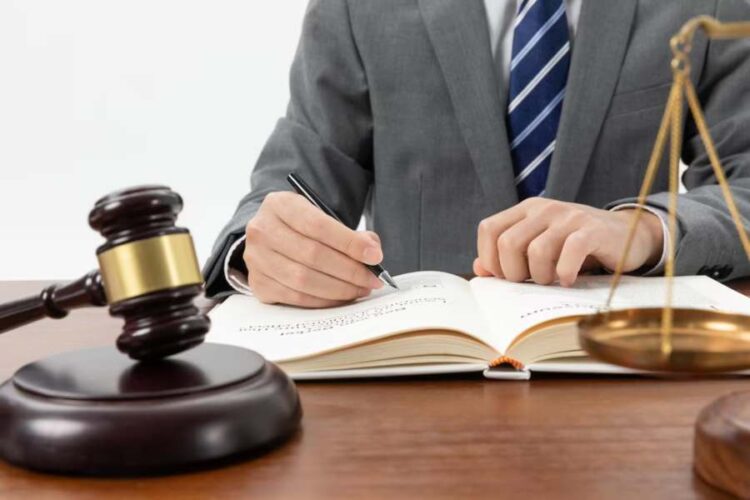Can a lawyer sign a settlement agreement? This is a question many clients ask during legal disputes, particularly when negotiations are resolved. Settlement agreements are binding contracts that resolve disputes without trial, requiring signatures to become enforceable. But whose signature matters—yours, your lawyer’s, or both?
Understanding the role of an attorney in the settlement process is crucial. In most situations, a settlement agreement should be signed by the client. However, there are specific circumstances in which a lawyer may sign on behalf of their client, particularly if authorized under a power of attorney, court order, or specific legal arrangement. Still, this authority must be clear, documented, and ethically sound.
In this comprehensive guide, we’ll explore the legal boundaries of attorney authority in settlements, when a lawyer may or may not sign on your behalf, and how to protect your rights. If you’re navigating a civil lawsuit, divorce, or business dispute, knowing the answer to “Can a lawyer sign a settlement agreement?” can prevent confusion, protect your legal standing, and avoid potential legal challenges down the line.
Can a Lawyer Sign a Settlement Agreement?
Yes, a lawyer can sign a settlement agreement, but only if they have explicit authorization from the client. Typically, clients must sign such agreements themselves, as these documents are legally binding and directly affect their rights. However, in some instances—like when a power of attorney is granted or there’s written consent—a lawyer may sign on the client’s behalf. Without proper authorization, the agreement may be invalid or challenged in court.
Can a Lawyer Legally Sign a Settlement Agreement on Your Behalf?
In general, lawyers cannot sign a settlement agreement unless they have explicit authority from their client. Settlement agreements are legally binding contracts that carry profound implications. Courts and ethics rules emphasize the importance of the client’s direct consent before concluding a settlement.
However, a lawyer may sign in some jurisdictions or under exceptional circumstances if a client has given explicit, written authority. This could be through a power of attorney, a prior agreement, or specific instruction documented during litigation. Working with an experienced settlement agreement lawyer can help ensure that such authorization is appropriately documented and legally sound, minimizing the risk of future disputes or misconduct claims.
Ethical standards, such as those from the American Bar Association (ABA), require lawyers to communicate all settlement offers to clients. Final decisions, especially regarding acceptance of terms, rest solely with the client. If a lawyer were to sign without this consent, it could be considered malpractice or unauthorized action.
Ultimately, a client’s active participation in the settlement process ensures fairness and protects both parties from legal ambiguity. Lawyers play a crucial advisory and negotiation role, but the final say must come from the client unless legally permitted otherwise.
When Can an Attorney Sign a Settlement Agreement?
Court-Appointed Authority
When a client is legally incapacitated or under guardianship, a court may grant a lawyer the authority to act. This typically occurs when the individual is unable to make legal decisions due to mental or physical conditions. In such cases, the court ensures that the attorney acts in the client’s best interest and has the full legal capacity to enter into binding agreements like a settlement.
Power of Attorney Agreements
Clients who foresee being unavailable or unable to handle their legal affairs may formally grant their attorney the right to act on their behalf through a power of attorney document. This legal instrument must be specific and clearly state that the lawyer can sign settlement agreements. Without such clarity, the authority to sign may be questioned or challenged later in court.
Written Client Consent
A more straightforward method involves the client providing written consent and authorizing their attorney to execute the settlement. This consent must be explicit, preferably documented in writing, and included in the case record to avoid future disputes. Courts generally uphold such agreements if it’s proven that the client knowingly approved the arrangement.
Emergency Situations
In rare and time-sensitive situations, a lawyer may need to act quickly, mainly if the client is unreachable. Courts may accept a lawyer’s signature on a settlement agreement in emergencies, especially if the resolution prevents more significant legal harm or delay.
Business or Class Action Cases
In large-scale litigation, such as business disputes or class actions, lead counsel may be allowed to sign settlement agreements on behalf of the group or corporation. This is typically pre-approved and governed by strict procedural rules to ensure fairness and legality.
Why Should Clients Review All Settlement Terms Personally?
Clients should always take the time to review their settlement agreements thoroughly before anything is signed. Being directly involved in the review process is essential to ensure that all terms are understood and that the final agreement accurately reflects the negotiated outcome. Settlements carry legal and financial consequences, so client awareness and confirmation are crucial. Here are several reasons why personal review is non-negotiable:
- Avoid Misunderstandings: Carefully reading the agreement allows clients to confirm that all discussed and negotiated terms are correctly stated in the final document, avoiding future confusion.
- Protect Legal Rights: A settlement may involve waiving certain rights, such as the right to sue or seek further damages. Clients must fully understand what they are agreeing to give up or retain.
- Prevent Fraud or Error: Reviewing every detail helps detect inaccuracies, misstatements, or potential fraud. Even a tiny error in wording can lead to unintended legal consequences.
- Maintain Control: Active participation in the settlement process empowers clients to make informed decisions. It ensures they are not unknowingly bound by terms they didn’t agree to.
- Ensure Validity: Courts prefer direct client participation in settlement execution. Agreements signed without a client’s review or approval may be deemed invalid or subject to challenge.
Taking these steps protects the client’s interests and ensures that the legal process remains transparent, ethical, and enforceable. Trusting your lawyer is important, but so is personally understanding the agreement you are entering into.
What Are the Risks if a Lawyer Signs Without Authorization?
A lawyer signing a settlement agreement without the client’s express consent could lead to serious legal and ethical issues. Clients may challenge the agreement’s validity, and courts may reject the settlement altogether. In such cases, the lawyer could face disciplinary actions from the state bar, including suspension or disbarment.
There’s also the risk of malpractice claims. Clients who suffer damages from unauthorized settlements may sue their lawyer for breach of duty. In the worst-case scenario, the client might be stuck with unfair terms that are difficult to reverse.
Clients must stay informed and involved in all legal decisions—especially settlements. Lawyers must follow professional conduct rules and court procedures to protect themselves and their clients.
How to Ensure a Settlement Agreement Is Properly Signed
Ensuring a settlement agreement is correctly signed is critical to its enforceability and legal protection. Whether signing it yourself or authorizing your lawyer, specific steps must be followed to avoid misunderstandings or disputes later. Here’s a step-by-step checklist to help safeguard your interests during the signing process:
- Always Read the Full Agreement
Before agreeing to anything, take the time to read the entire document thoroughly. Understand every clause, condition, and obligation. This ensures you’re fully aware of what rights you are giving up and what benefits you’re receiving. - Confirm Lawyer’s Authority in Writing
This authority must be documented if you decide to authorize your attorney to sign the settlement on your behalf. Whether through a power of attorney or written instruction, ensure there is no ambiguity in the authorization. - Request a Copy of the Final Document
Once all parties have signed the agreement, ensure you receive a copy for your records. This serves as proof of the final terms and can be used for reference in the future. - Ask Questions About Legal Terms
Don’t hesitate to ask your lawyer about legal jargon or unfamiliar phrases. Understanding every part of the agreement is essential to avoid accidentally agreeing to terms, not in your favor. - Verify Signatures and Dates
Double-check that all necessary signatures and dates are included. A missing signature or incorrect date can invalidate the agreement or delay its enforcement.
Conclusion
To answer the question—can a lawyer sign a settlement agreement?—the general rule is no unless they have explicit authority from the client. Even then, that authority must be documented, ethical, and within the boundaries of professional conduct rules. Clients should always review and understand what they’re signing. Settlement agreements resolve disputes and carry lasting consequences, so ensuring proper execution is vital.
FAQ’s
Q. Can my lawyer finalize a settlement without telling me?
A. No, your lawyer must inform you of all settlement offers legally and ethically. Only you, as the client, can accept or reject a settlement.
Q. What happens if I disagree with a settlement my lawyer signed?
A. If your lawyer signed the settlement without prior knowledge or consent, you may have legal grounds to challenge its validity and potentially void the agreement in court.
Q. Is a lawyer’s signature valid without client approval?
A. Generally, no. A lawyer’s signature on a settlement agreement without the client’s express consent or written authorization is typically not enforceable and may be ruled invalid.
Q. Can I authorize my lawyer to sign for me?
A. Yes, you can authorize your lawyer to sign a settlement on your behalf, but the authorization must be explicit and documented, preferably through a written agreement or power of attorney.
Q. What are the consequences for a lawyer who signs without consent?
A. A lawyer who signs a settlement without proper authorization may face serious consequences, including professional disciplinary action, malpractice claims, or the agreement being legally overturned.










